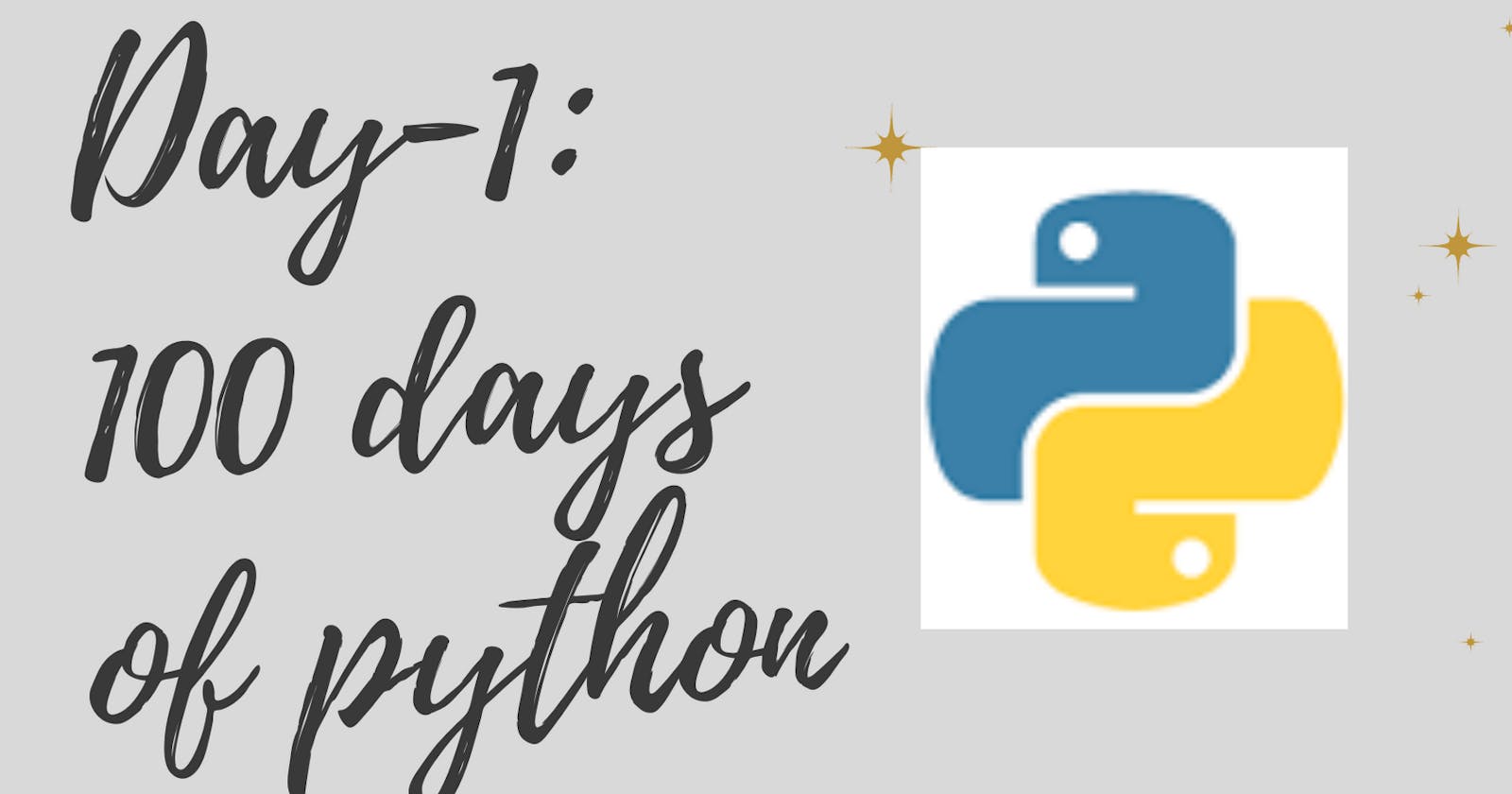Yesterday, I started learning the course, 100 days of Python. This course starts from the basics and moves to the highest level. Although having a little bit of experience in Python, still I taught taking this to strengthen my knowledge about it. Here I will share my everyday learning with the course. Though I won't take 100 days to complete this course, I will cover each day's lessons in the blogs.
On the very first day, I learned about Printing, Commenting, Debugging, String manipulation, and Variables. All combined at the end of the day we will do a Band name generator program from our learnings.
Print :
print(' Hello World!')
print(" Hello World!")
Printing a number can be done in two ways: One is using single quotes and the other is using double-quotes. But there can be situations to use both of them. An example of that is below
print("print('Hello World!')")
If a single quote should be used in the print statement, then for printing we should use double quotes and vice-versa.
Comment :
There is only one way to comment in python by using the '#' symbol. If you want to write any note and it should not be compiled then we use comments.
#The one below this line is a print statement
print(" Hii, How are you??")
Debug :
Debugging is where we find the errors in the code and rectify them.
Suppose if the question is like this and you should debug them. Then,
print(("Have a great day")
print("We have won)
print("Hello")
All three lines above are having some errors. let's debug them
# 1st line is having an extra open bracket
print("Have a great day")
#2nd line don't have finishing double quote
print("We have won")
#3rd line having an extra indentation
print("Hello")
Input method :
This is used to take input from the user. Same as the print statement, but the process is terminated only when it gets the required input.
input(" Enter your name :")
#After executing print statement it doesn't care about anything and just terminates
#But, the input should get the required input for termination.
Variables :
Generally, variables are used to some value inside them. They can be of int, float, string, etc. In the below example I will show how to store input data
a = input("Enter your name : ")
#To print value we should print a
print(a)
String Manipulation
To concatenate a string with another we use the '+' symbol
print("Hello" + input("Enter your name"))
#1st input is compiled and gets input from user
#Now name is concatenated with Hello
For finding the length of the string, we use len(variable) function
a = print("Enter your name")
b = len(a)
print(b)
Here name gets stored into a and length of a is calculated and stored into b and finally b gets printed.
Swapping two numbers
If we have a cup of milk, and a cup of coffee to change milk to coffee cup and coffee to milk cup, we use another cup, and here also the same concept is followed
a = input('entre a value')
b = input('entre b value')
print(a)
print(b)
c = a
a = b
b = c
print(a)
print(b)
let us assume a as 5, and b as 100. c=a means a value is stored in c then c has 5 and a is empty. a=b means b's value 100 is stored in a and b is empty. b=c means c value 5 is stored in b and c is empty. Now a has 100 and b has 5.
Band name generator program:
a = input("Enter your home town\n")
b = input(""Enter your pet name\n")
print("Your band name is "+a+" "+b)
